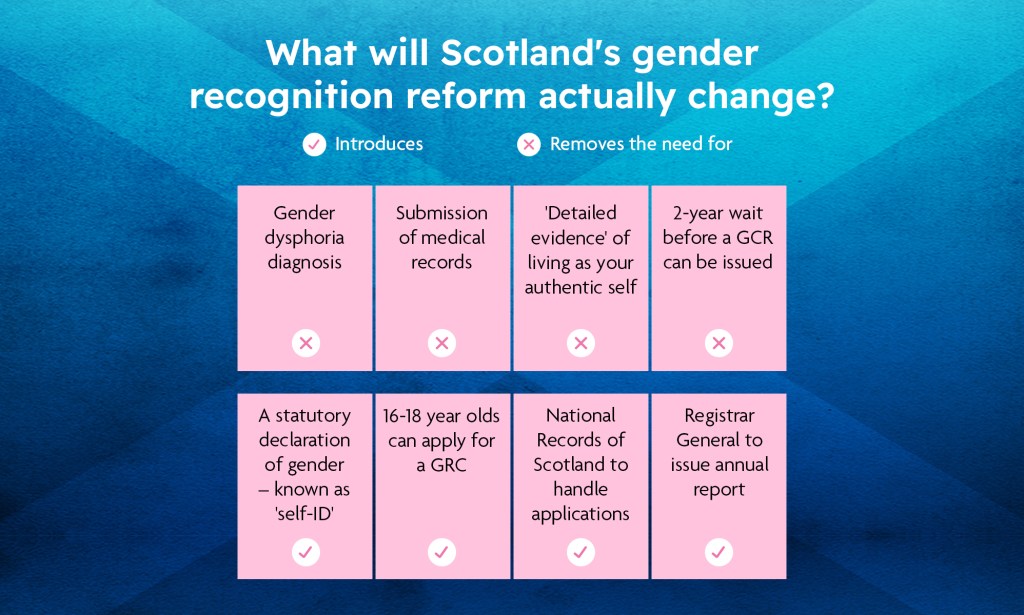Tory government’s ‘spiteful’ plans to block Scotland gender reforms would ‘damage UK’s reputation’

Nicola Sturgeon and Rishi Sunak (Credit: Getty Images)
The Conservative government’s plans to block Scotland’s trailblazing gender-reform bill would be “disastrous” and would “undermine” relationships between England and Scotland, LGBTQ+ charity Stonewall has said.
Reports in The Sunday Times claimed Rishi Sunak and his government are poised to intervene on the gender-reform bill by blocking it from being given Royal Assent, a move that was threatened shortly after the bill was pushed through in December.
Tory minister for equalities, Kemi Badenoch, has expressed her opposition to the bill, claiming MSPs needed “more time” to consider it.
The unprecedented move to block Royal Assent, which Sunak claimed would be “completely reasonable”, citing concerns over “women’s and children’s safety”, has never before been used, and is something Scottish MSPs say they will “vigorously contest”.
Stonewall spoke out about the move on Sunday (8 December), following The Sunday Times report, claiming blocking Scotland’s gender-reform bill would be a “mistake” that would come across as “spiteful”.
“The Scottish government had an overwhelming mandate to reform the Gender Recognition Act,” Stonewall’s director of nations Colin Macfarlane said in a statement to PinkNews.
“The reforms are one of the most consulted on in the Scottish Parliament’s history, and the new law was passed by a resounding cross-party majority, with support from MSPs in all parties.
“For the UK government to seek to block implementation of this Act would be disastrous for trans people, who deserve far better from their government. It would also profoundly undermine relationships with the Scottish Government and damage the UK’s international reputation as a rights-respecting nation.
“It will be yet another example of hampering progress on LGBTQ+ rights, and undermine the prime minister’s pledge to govern with compassion.”
Macfarlane added that as the UK government recognises birth certificates from EU countries which have already adopted a “de-medicalised” model of gender recognition, refusing to recognise Scotland’s gender bill would “fly in the face of international best practice”.
“’We hope this is not the approach the prime minister wishes for the UK government to take,” he said.

What does the Gender Recognition Reform bill mean for trans people?
The legislation, which passed its first vote on 27 October, would amend the Gender Recognition Act 2004 to lower the age limit to apply for a Gender Recognition Certificate (GRC) from 18 to 16, and shorten the period a trans person would have to wait before legally changing their gender (three months for those over 18, six months for those under).
Trans people would also be able to gain legal recognition without being required to get medical reports or a diagnosis in order to obtain a GRC.
MacFarlane said at the time of the final vote on 22 December that pushing through the bill was a “tremendous step forward for trans rights”.
“It brings Scotland into line with international best practice and once again establishes itself as a world leader on human rights, by making a small change which brings dignity to trans people who deserve to be legally recognised for who they are,” MacFarlane added.
“The UK government must now follow and introduce legislation to ensure that trans people UK-wide have access to the same standards of human rights.”
How did this story make you feel?

